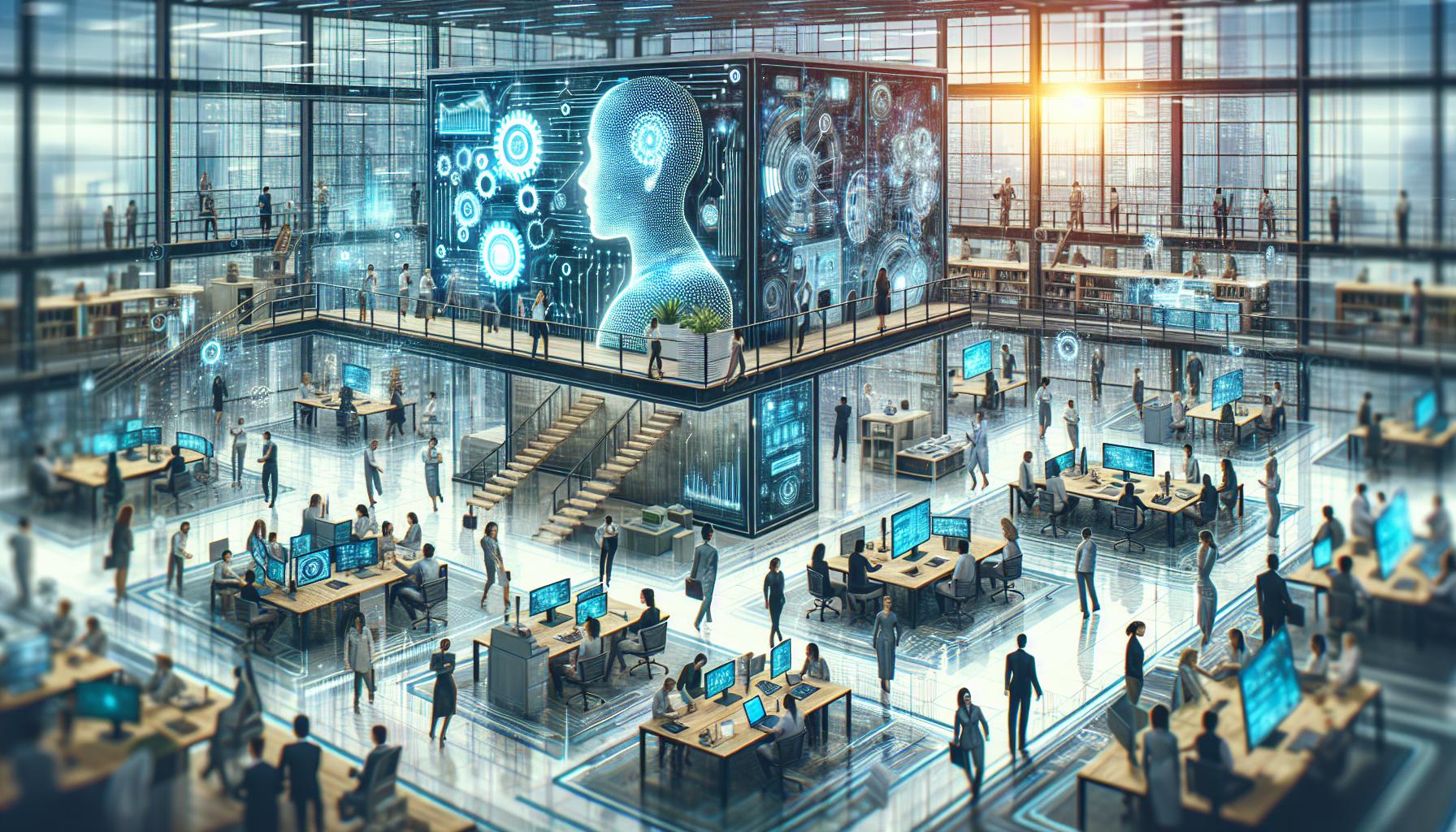Transforming the Modern Workplace: The Rise of Artificial Intelligence
The rise of artificial intelligence (AI) is reshaping the modern workplace, leading to an increased demand for creativity, problem-solving, and emotional intelligence. Despite concerns about job losses due to automation, industry experts and leaders view this evolution optimistically, envisioning new job opportunities that prioritize human interaction and higher-level strategy over routine tasks. In this AI era, professionals are encouraged to understand and interact with AI technology at a basic level, while honing their soft skills to seize the opportunities that AI presents.
The Importance of Soft Skills in an AI-Dominated Era
According to a report on Forbes, industry leaders are calling for a new breed of management that cultivates the innovation that machines cannot generate. They predict a future where jobs that involve human interaction will prevail, while purely manual jobs head towards automation. This shift emphasizes the importance of soft skills such as creativity, problem-solving, and emotional intelligence.
Supporting this, an article on Best Stocks discusses the growing significance of soft skills in an AI-dominated workplace and the potential streamlining of product creation processes by AI. The piece also provides an analysis of IBM’s financial data, showing a promising start to the new year, suggesting the AI sector’s positive momentum.
How AI is Reshaping Job Design and Roles in the Workplace
A study from the University of Southern California, as cited on Real KM, found that AI can support creativity and soft skills in the workplace under certain conditions. It detailed how AI assistance can change job design and enable higher-skilled employees to generate innovative scripts and develop positive emotions at work, conducive to creativity.
However, the study also warns that lower-skilled employees may not reap the same benefits and may find AI complicates their tasks rather than simplifying them. Thus, it’s vital that organizations provide adequate training and support to ensure all employees can adapt to and benefit from AI technologies.
The Future of AI: Enhancing Creativity and Human Interaction
While AI is expected to automate routine tasks, it cannot replace the human touch and creativity required in areas such as design, innovation, and customer service. A LinkedIn article by Firat Caliskan emphasizes this, stating that the demand for creativity and soft skills in the workplace will continue to grow as AI automates more tasks.
Similarly, Resume Genius’s analysis of in-demand job skills reinforces the importance of emotional intelligence and adaptability in AI-driven workplaces. As AI continues to evolve, these soft skills will likely become even more valuable.
Seizing the Opportunities of the AI Age: Fostering a Culture of Continuous Learning
In conclusion, the rise of AI is not a threat but an opportunity for professionals to enhance their skill sets, particularly their soft skills. Organizations need to foster a culture of continuous learning, where employees are encouraged to understand and interact with AI technology at a basic level while improving their creativity, problem-solving, and emotional intelligence. Only then can they fully leverage the opportunities presented by the AI age.
Analyst comment
Positive news: The rise of artificial intelligence is reshaping the modern workplace. While there are concerns about job losses, experts view this evolution optimistically, envisioning new job opportunities that prioritize human interaction and higher-level strategy. Soft skills such as creativity, problem-solving, and emotional intelligence are becoming increasingly important in the AI-dominated era. AI can support creativity and job design under certain conditions. However, adequate training and support are essential to ensure all employees can adapt to and benefit from AI technology. AI cannot replace the human touch in areas such as design, innovation, and customer service. Seizing the opportunities of the AI age requires continuous learning and the enhancement of soft skills.













